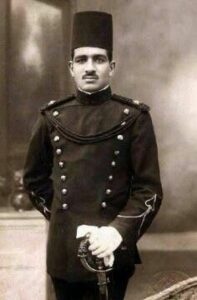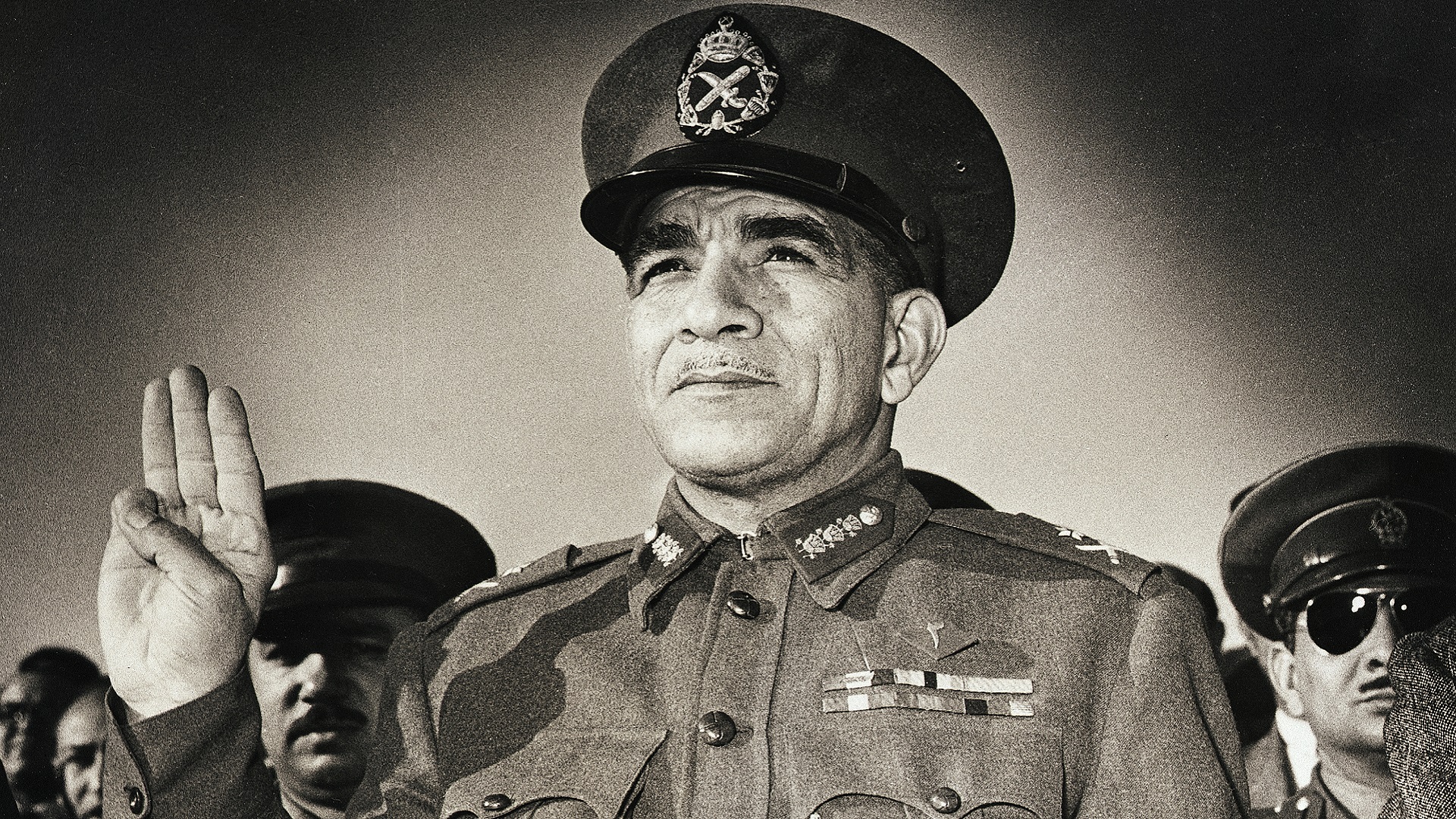Mohamed Naguib was the first leader of the Egyptian Republic. He was born in Khartoum, Sudan on February 20, 1901, to Youssef Naguib, an Egyptian army officer, and his wife Zohra Ahmed Othman. His secondary school education was at Gordon Memorial College in Khartoum, graduating in 1918.
Although his father tried to dissuade him, young Mohamed wanted a career in the Egyptian army. He graduated from the Egyptian Military Academy in 1921 and in 1923 joined the Egyptian Royal Guard. He continued his education at Cairo University where he earned a law degree and later Master’s degrees in political science and civil law. He spoke several languages: Arabic, English, Italian, German, French, and Hebrew.
After enlisting in the army, he rose quickly through the ranks. During World War II he served with combat units of the British Army. Naguib performed exceptionally during the 1948 Arab-Israeli War, where he was wounded and later honored as a war hero in Egypt. He was promoted to Major-General in 1950.
In 1949 Naguib secretly joined the Free Officers Movement led by Colonel Gamal Abdel Nasser. All the members were under the age of 35 and most were from poor or working-class backgrounds. This group disliked the government of King Farouk. They felt he was overly controlled by the British and they were critical of the King’s profligate spending habits when so many of his subjects lived in abject poverty. Although King Farouk was technically a constitutional monarch, he constantly ignored the wishes of parliament. The Free Officers Movement’s ultimate goal was to overthrow Farouk.

Naguib also belonged to the Officer’s Club and on January 6, 1952, he was elected president of the club having won in a landslide over Farouk’s candidate for the position. Farouk then dissolved the club.
Rumors reached the Free Officers Movement that Farouk was planning to take action to eliminate officers opposed to him. The leaders of the Free Offices movement decided to act and on July 23, 1952, a coup was launched under the direction of Naguib and Nasser. Because Naguib was well-known and a popular hero, he was appointed as Commander-in-Chief by the organizers of the coup who had formed the Revolutionary Command Council (RCC).
On July 26, 1952, King Farouk was sent into exile and in September the RCC appointed Naguib as Prime Minister. The following June, Naguib declared an end to the monarchy. The Republic of Egypt was born with Naguib as President. Behind the scenes, a power struggle was emerging in the RCC between Naguib and Nasser. Naguib wanted slow changes while Nasser wanted immediate political and economic reforms. Nassar also promised the army a greater role in the government.
On February 25, 1954, Naguib resigned as President. When his resignation promoted street protests throughout Egypt by his supporters, the RCC reinstated Naguib as President on February 26, with Nasser as Prime Minister and, most importantly, head of the RCC. Later that year an assassination attempt was made against Nasser. It was rumored that Naguib was involved. He resigned on November 14, 1954, and was quietly placed under house arrest by the RCC. He was not released until 1971 when he was again recognized as a national hero.
On August 28, 1984, Naguib died at the age of 83.
Naguib was married to Aisha Labib and later Zainab Ahmed. He had three sons (Ali, Farouk and Yusuf) and a daughter, Samiha.

